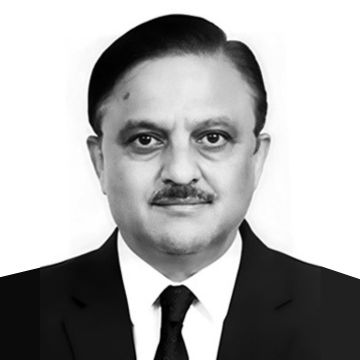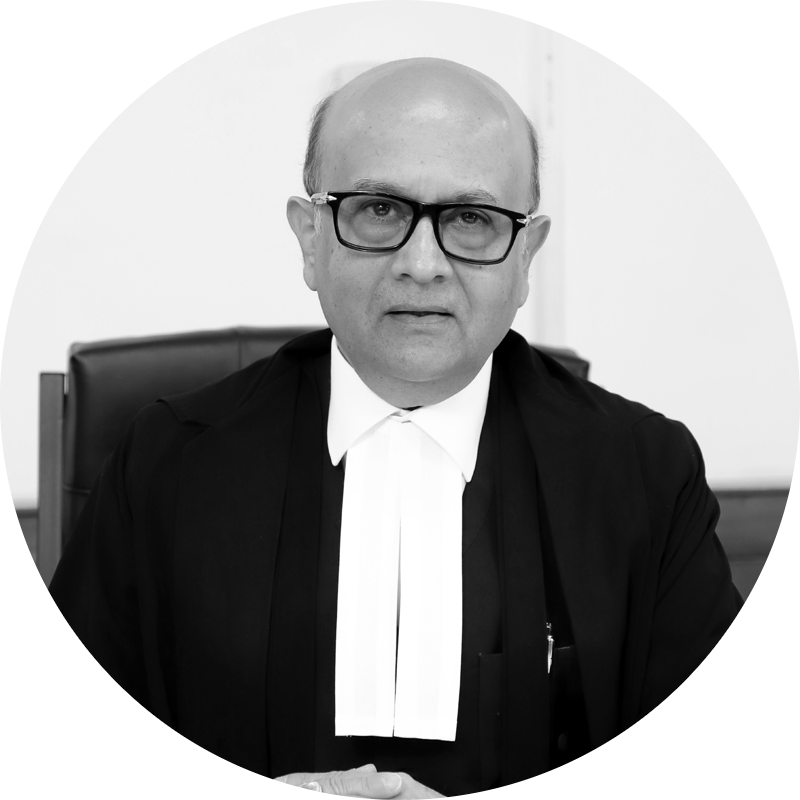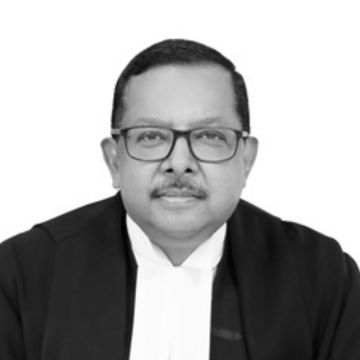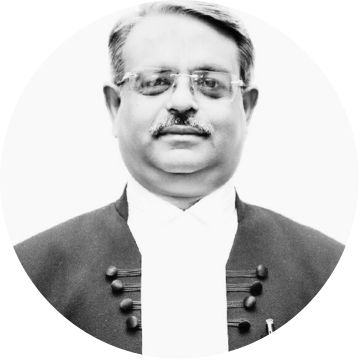State’s power to regulate industrial alcohol
State of Uttar Pradesh v Lalta Prasad Vaish
Citation: 2024 INSC 812
In a 8:1 majority, the Supreme Court overturned Sythentics and Chemicals (1990) which held that “intoxicating liquor” under Entry 8 of the State List referred only to potable liquor, taking it our of the scope of states’ powers
Decided

D.Y. Chandrachud CJI

Hrishikesh Roy J

A.S. Oka J

B.V. Nagarathna J

J.B. Pardiwala J

Manoj Misra J

Ujjal Bhuyan J

S.C. Sharma J

A.G. Masih J
Parties
Appellant: State of Uttar Pradesh through the Principal Secretary UP Government Excise Department; The Excise Commissioner UP; District Excise Officer/Collector
Lawyers: Senior Advocate Dinesh Dwivedi, Advocate on Record Samar Vijay Singh
Respondent: Lalta Prasad Vaish through its partners Avinash Chandra Vaish
Lawyers: Ambhoj Kumar Sinha
Impleader: Jubilant Life Sciences Ltd.
Lawyers: Advocates Pallavi Langa, Dhananjai Mishra, Nishit Agrawal, Manish Kumar, Mukesh Kumar Maroria, Jatinder Kumar Bhatia, Aaditya Aniruddha Pande, Mahfooz Ahsan Nazki, Rajiv Kumar Choudhry, Swati Ghildiyal, Sabarish Subramaniam
Case Details
Case Number: Civil Appeal No.151 of 2007
Next Hearing:
Last Updated: July 8, 2025
Key Issues
Whether industrial alcohol is included in Entry 8 of the State List and is therefore within the exclusive jurisdiction and control of the state?
Whether the state can legally control industrial alcohol under Entry 33 of the Concurrent List as a product of “industry notified under the Industrial Regulation Act as per Entry 52 of the Union List?
Whether the Union has made any law to regulate industrial alcohol under Section 18G of the Industrial Regulation Act 1951?
Does the judgement in Synthetics and Chemicals v State of Uttar Pradesh (1989) dissolve Entry 33 of the Concurrent list?
Case Description
Industrial alcohol and potable (drinkable) liquor are both manufactured from rectified spirit, a highly concentrated spirit which is generally toxic in nature. The rectified spirit then undergoes a “denaturation” process and becomes industrial alcohol. The denaturation process makes the spirit unpalatable and nauseating, making it unfit for consumption. In the illegal economy of alcohol trade, industrial alcohol is sometimes used for manufacturing of potable liquor making the regulation of both industrial alcohol and potable liquor a crucial and complex task. For years, the states and the Union have been pitted on who has the legislative competence over each type of alcohol.
Overlapping jurisdictions under various lists
Entry 52 of the Union List empowers the central government to regulate industries that Parliament finds to be of “public interest.” Parliament—acting in accordance with the Union List—through Section 18-G of the Industries (Development and Regulation) Act, 1951 (Industries Act), is entrusted with the power to regulate specific products related to scheduled industries to the Union government. This was done to ensure that these products were being distributed fairly and sold at reasonable prices.
Under Entry 8 of the State List, a state is empowered to make laws for “Intoxicating liquors, that is to say, the production, manufacture, possession, transport, purchase and sale of intoxicating liquors.”
However, under Entry 33 of the Concurrent List both the state and Union governments can make laws on the products of any industry, even if Parliament has granted control to the Union in public interest. And therein lies the confusion of who has the power to regulate industrial alcohol—the state or the Union.
Cases leading up to the Constitution Bench reference
On 24 April 1956, a five-judge Constitution Bench of the Supreme Court in Ch.Tika Ramji v State of Uttar Pradesh, was hearing a case pertaining to sugarcane regulation. They were deciding whether a state legislation enacted in pursuance of Entry 33 of the Concurrent list impinged into the Union’s power under Entry 52 of Union list. The Court held that the parliamentary intent behind Section 18-G did not indicate that the “entire field” or regulatory scope of the specific product of scheduled industries would be covered by the provision. It also found that the state legislation dealt only with supply and purchase of sugarcane and did not impinge on the Union’s exclusive jurisdiction to regulate sugar. The Court recognised that the State’s power to legislate on matters under Entry 33 of Concurrent list existed independently of Section 18-G in the Industries Act.
Almost 34 years later, on 25 October 1989, a seven-judge Constitution Bench of the Supreme Court in Synthetics & Chemicals Ltd. v State of Uttar Pradesh held that the state government had power to regulate the use of alcohol. As part of that power, it held that states can also create provisions to prevent and check industrial alcohol being misused to make potable liquor. It stated that it recognised this power “not as emanation of police power” but as an expression of the state’s sovereign power.
Uttar Pradesh’s Notification on industrial alcohol
On 13 January 1990, the Uttar Pradesh government issued a notification under U.P. Licences for the Possession of Denatured Spirit and Specially Denatured Spirit Rules, 1976 (1976 Rules). This starts the core story of the case about the UP Licence fee. The UP government imposed a licence fee of 15 paise per litre on the quantity of specially denatured spirit obtained from distilleries.
The Rules triggered a series of writ petitions at the Allahabad High Court challenging the notification. Relying on Synthetics, the High Court held that only the Union could legislate on liquor which was “unfit for human consumption”, that is, industrial alcohol.
The Court reasoned that the state governments enjoyed limited regulatory authority over industrial alcohol. States legislative power was restricted to the extent of “payment of salary for the staff”, and to oversee the prevention of industrial alcohol being converted into potable alcohol. It noted however, that if and when the state government imposed any regulatory fee pertaining to denatured spirit, it had the burden of showing that there was a “broad correlation” between the fee charged and administrative expenses.
Further, the High Court also found that there was no correlation between the 15 paise per litre licence fee and any additional expenses incurred by the department. Therefore, it concluded that this fee was not a regulatory fee but was in fact a tax. In 1997, a Division Bench of the Supreme Court in Vam Organic Chemicals Ltd. v State of Uttar Pradesh dismissed the appeals against the High Court judgement.
In 1999, a notification was issued under the 1976 Rules which stated that for any sale made by any wholesale vendor to licence holders under the U.P Excise Act, 1910, a licence fee of 15 percent ad valorem would be applied. But once the rectified spirit was converted into industrial alcohol after denaturation, the licence fee would not be imposed anymore.
Later in October 2003, a Division Bench of the Supreme Court in State of Uttar Pradesh v Vam Organic Chemicals Ltd., delivered judgement on a Special Leave Petition (SLP) which had challenged the Allahabad High Court’s decision on the 15 paise per litre additional fee. The Bench reiterated that the state government was competent to levy a fee for the purpose of ensuring that industrial alcohol is not surreptitiously converted into potable alcohol. This, the Court stated, would ensure that both the State and the public are protected from consuming illicit liquor.
Meanwhile R.P. Sharma, an Aligarh based distributor of motor oil and diesel moved the Allahabad High Court challenging the imposition of the licence fee declared under the 1999 notification. His core challenge was based on the argument that the Uttar Pradesh government lacked the competence to regulate the manufacturing and sale of “denatured spirits” due to Section 18-G of the Industries Act.
The petitioners relied on the Supreme Court’s judgement in Vam Organics Chemicals (1997) in which the Court had noted that the state government, per se, did not have power to levy tax on industrial alcohol, whether or not it had the potential to be used as alcoholic liquor.
On 12 February 2004, the Allahabad High Court rejected the petitioner’s argument and noted that denatured spirit was outside the legislative power of the state which only had regulatory authority over-potable alcohol. The Court held that the licence fee was “wholly illegal” and that the Uttar Pradesh government had failed to show that the fee was being charged to overlook the prevention of diversion of rectified spirit to be used for human consumption.
The Court relied on Vam Organic Chemicals (1993) to state that the imposition of the fee on such grounds was unacceptable since the general regulation of denatured spirit was outside the purview of the state legislature. The High Court directed the Uttar Pradesh government to not only refund the fee collected from the petitioners but also pay an interest at the rate of 10 percent per annum from date of realisation/deposit till the date of refund within two months of production of certified copy of the judgement.
On 22 August 2004, after a SLP was filed against this judgement, the Supreme Court granted an interim stay on the Allahabad High Court’s order.
Reference to a larger bench
On 27 October 2007, a Division Bench of the Supreme Court in State of U.P. v Lalta Prasad Vaish led by Justice Altamas Kabir held that following the decision in Synthetics & Chemicals, Section 18-G removed the jurisdiction of the state legislature from Entry 33 of Concurrent list. It reiterated that states had the legislative competence to regulate potable liquor and a limited competence over industrial alcohol to make provisions to prevent and check industrial alcohol being used as intoxicating liquor.
The Court however had overlooked the judgement in Tika Ramji where the Court had noted that the state’s legislative competence under Concurrent list was not ousted by the Union’s legislation under Entry 52 of Union list and Section 18-G.
On 8 December 2010, after noting that the views expressed by the seven-judge Bench in Synthetics & Chemicals had “been distinguished” in several subsequent decisions of the Court, a five-judge Constitution Bench referred the matter to be finally adjudicated by a nine-judge Constitution Bench.
Since then, the matter remained pending for 4,872 days. On 7 October 2023, when the Court listed the case for directions before Chief Justice D.Y. Chandrachud-led bench.
A nine-judge Constitution Bench led by the CJI Chandrachud commenced hearing the case on 2 April 2024 and reserved judgement on 18 April 2024, after six days of hearing.
On 23 October 2024, eight out of nine judges upheld state governments’ power to regulate industrial alcohol, opening up a massive source of revenue for states. Justice B.V. Nagarathna dissented, holding that the supremacy of the Union government in controlling Scheduled Industries is clear in the constitutional and legislative framework.
